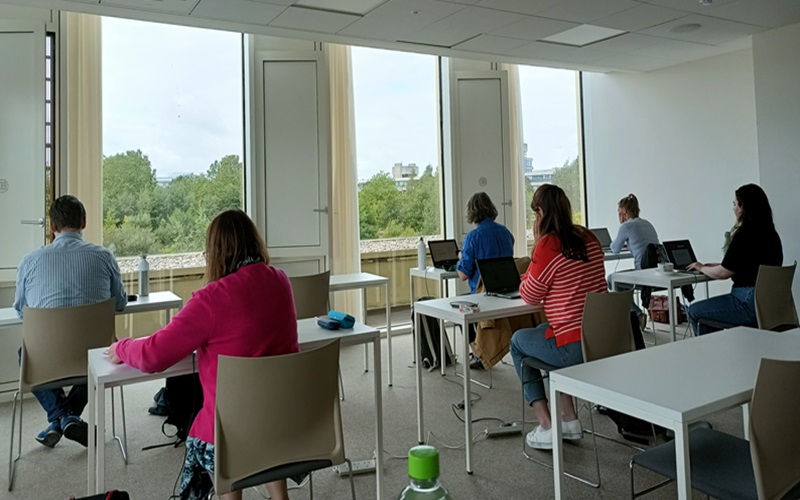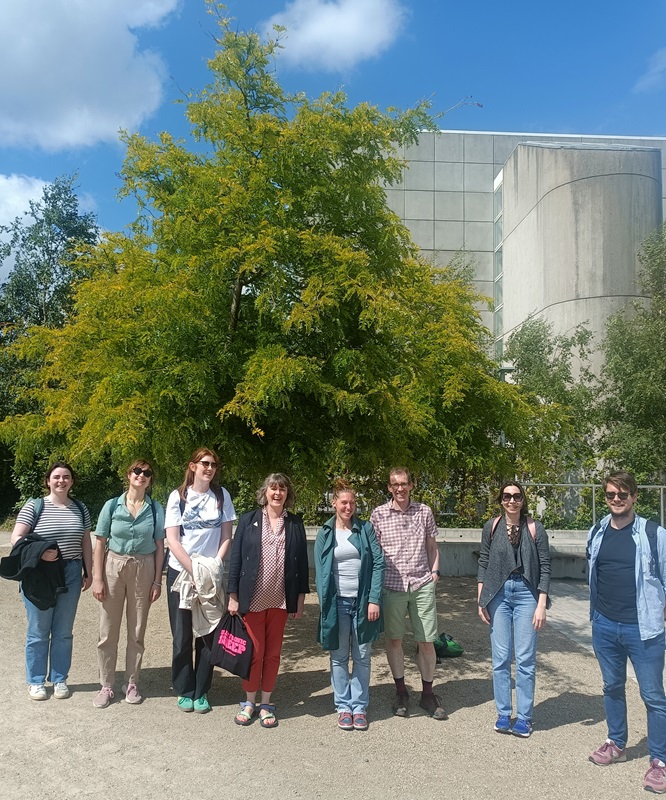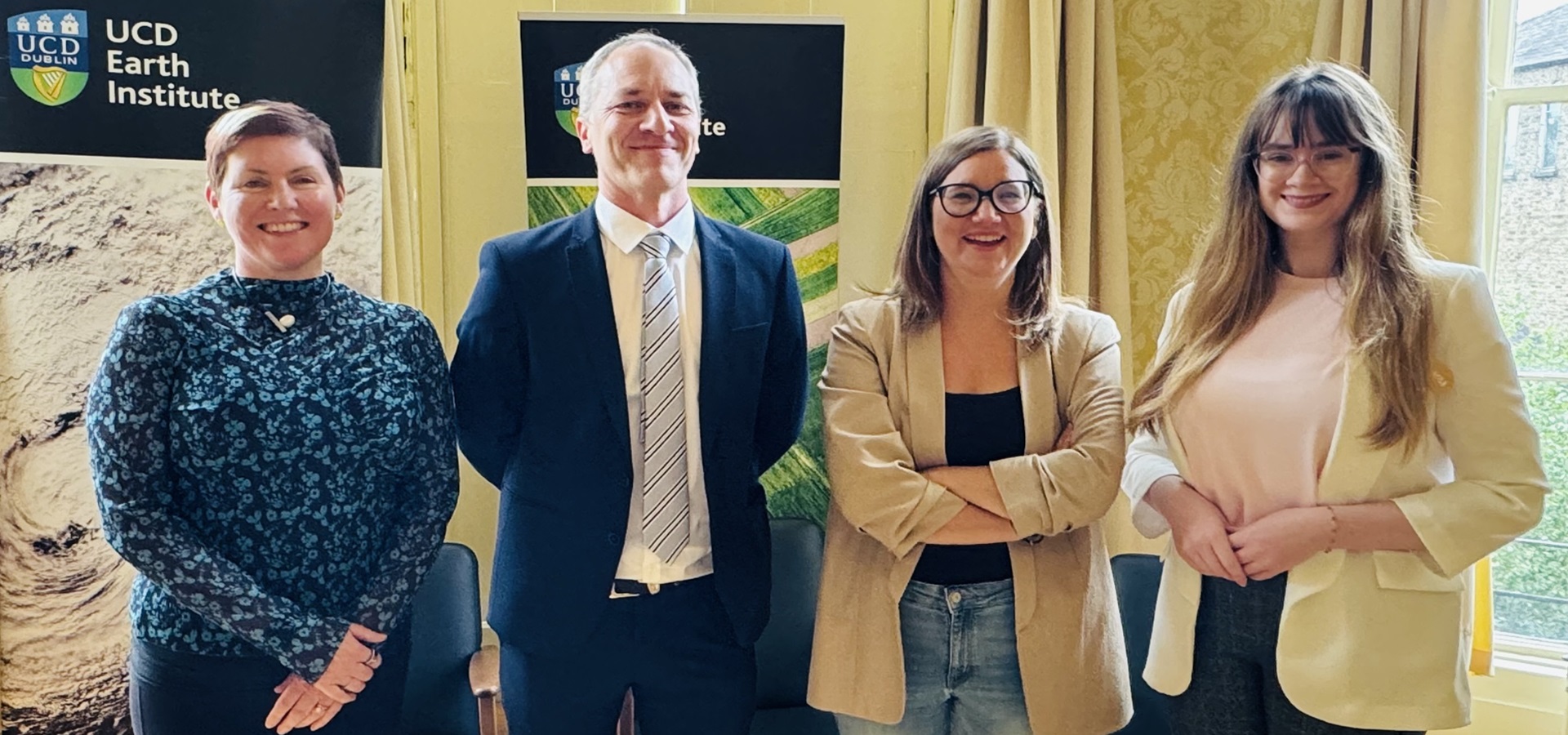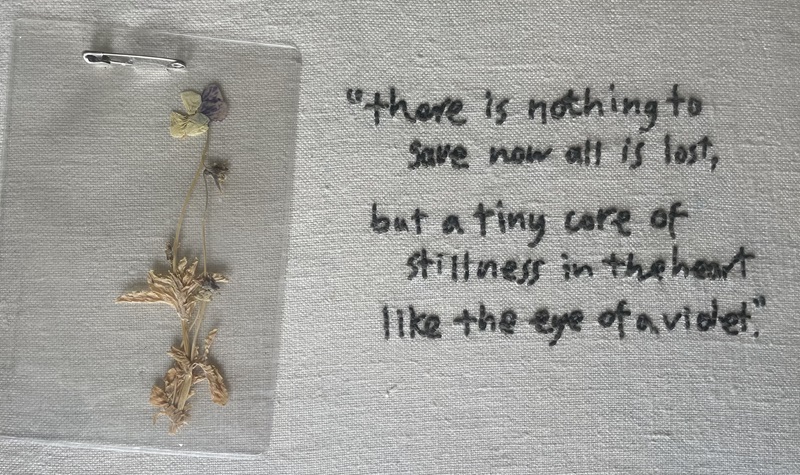Earth Institute 2024 Writing Retreat

How many times have you put off.a piece of writing? Or stared at a blank page before deciding you have more important things to do, like checking your email or organising your sock drawer?
Writing is a key output for many academics but getting it done can be a challenge, which is why Dr Dara Stanley and Dr Jon Yearsley co-organised a three-day writing retreat at the Confucius Institute for Earth Institute researchers.
“We wanted to create an opportunity for people to get relatively protected time, up to three days, for writing, and at the same time to meet some new faces from across UCD Earth Institute,” says Dr Yearsley from UCD School of Biology and Environmental Science, who used the time to break the back of a new paper about horizon scanning for new pests.
Another 10 or so people joined Stanley and Yearsley for the August retreat, from PhD students to senior lecturers. Each of them carved up to three days out of their calendars, sat in a room together overlooking a lake and got stuck into writing jobs.
To inspire creativity, the writers sat at desks facing out across the upper ‘engineering’ lake, giving them views of nature and plenty of natural light. Teas and coffees were on hand, and participants lunched together and went for a group walk in the middle of the day to clear their minds.
Guest speakers dropped by too, to share tips and encouragement. Historian Dr Matthew O’Brien from UCD Writing Centre pressed home the power of freewriting and ‘draft zero’ to overcome procrastination and perfection, and UCD Earth Institute journalist-in-residence Dr Claire O’Connell offered a framework for making your research more relatable for general readers, including a ‘magic algorithm’ for mapping out an article or blog post.
The result? Participants made serious headway with various writing projects, from methods sections to thesis chapters to blog posts.
“I worked on one of my manuscripts on which I made considerable progress,” says Dr Ankur Prabhat Sati from UCD School of Geography. “I wrote more on the draft in two days than in the last three months combined.”
Caroline Elliott Kingston from UCD School of Agriculture and Food Science got stuck into statistical analysis for a vegetation survey paper for a UNESCO World Heritage Site. “I had been putting it off,” says Caroline, who was glad to get the job done, and who realises that her office is not conducive to writing. “I usually write papers from home for silence.”
Sonya Cotton also appreciated having the time and space to chip away at the ‘overwhelming’ amount of writing facing her as she finishes her PhD at UCD Sutherland School of Law. “I was really grateful to Dara and Jon for curating a space where all the niggly micro-decisions were taken care of (where will I work, when will I work, what is the structure of my day, where will I get coffee, etc). It made me realise how exhausting the meta-work around work is, i.e. the constant stream of tiny decisions one has to make before settling down to just write.”
Dr Tomas Buitendijk from UCD School of Business focused on reading and planning, while Saule Akhmetkaliyeva from UCD SBES wrote a blog post, completed a draft of a paper and outlined a review, and Jessica Smyth from UCD School of Archaeology found the accountability of the session invaluable for polishing the draft of a paper.
That accountability also helped Dr Aisling Moffat from UCD SBES to tackle two manuscripts that had been hanging over her for far too long - she dug into them in the two-hour writing blocks that the retreat mapped out.
Many participants said they learned the value of dedicated time for writing, as well as scheduled ‘rewards’ such as walks, and for co-organiser Stanley, who is based in UCD School of Agriculture and Food Science the change of environment also helped.
“Academic life is so busy with so many different and varying demands that it can be hard to find the time for things like writing,” she says. “Being removed from my everyday location, with others who are also working, while having a reason to set an out of office, really helped me to protect and prioritise writing and thinking.”

Top tips for getting writing done
- Set aside dedicated time every day or week to think about what you are writing and to write, put it in your calendar, protect it
- Freewriting can help you get going: set a timer and write without stopping or checking, see what comes out
- Don’t let perfection get in the way of progress: consider what you are writing to be draft zero, you can edit it later
- When writing for a general audience, think about where your writing will end up, visualise where it will land

